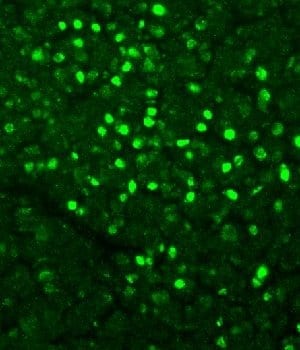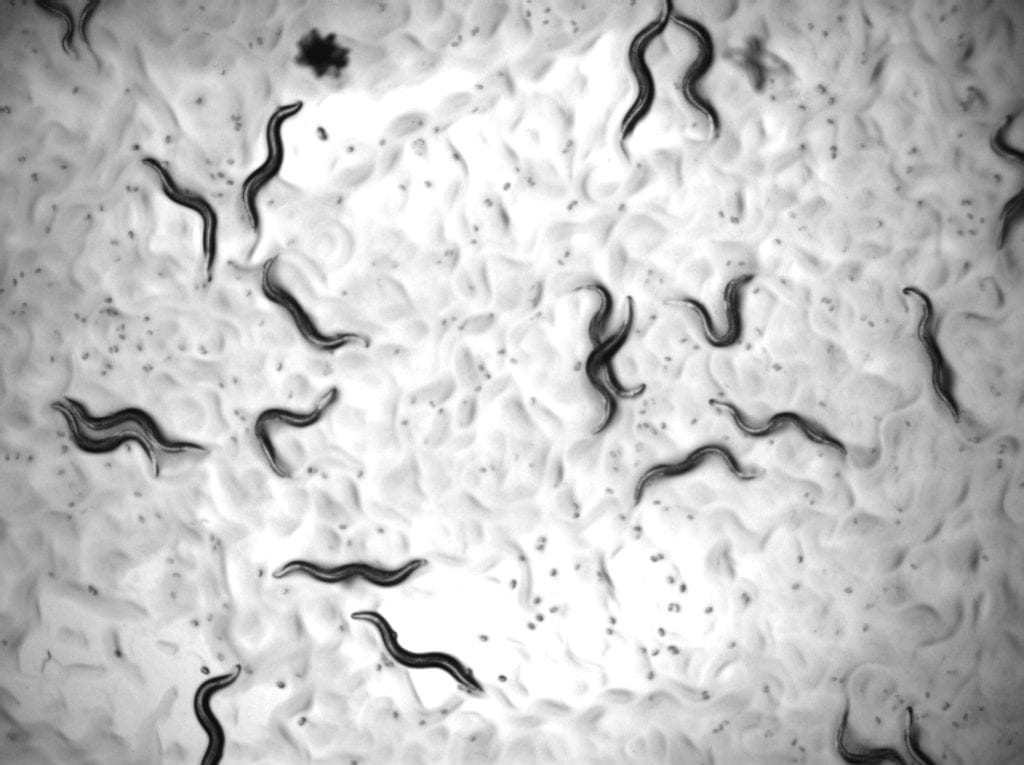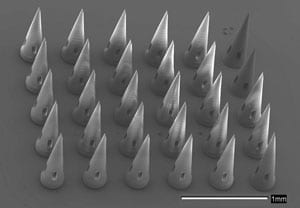
Scientists answer hotly debated questions about how calorie restriction delays aging process
Among scientists, the role of proteins called sirtuins in enhancing longevity has been hotly debated, driven by contradictory results from many different scientists. But new research at Washington University School of Medicine in St. Louis may settle the dispute.
Reporting Sept. 3 in Cell Metabolism, Shin-ichiro Imai, MD, PhD, and his colleagues have identified the mechanism by which a specific sirtuin protein called Sirt1 operates in the brain to bring about a significant delay in aging and an increase in longevity. Both have been associated with a low-calorie diet.
The Japanese philosopher and scientist Ekiken Kaibara first described the concept of dietary control as a method to achieve good health and longevity in 1713. He died the following year at the ripe old age of 84—a long life for someone in the 18th century.
Since then, science has proven a link between a low-calorie diet (without malnutrition) and longevity in a variety of animal models. In the new study, Imai and his team have shown how Sirt1 prompts neural activity in specific areas of the hypothalamus of the brain, which triggers dramatic physical changes in skeletal muscle and increases in vigor and longevity.
“In our studies of mice that express Sirt1 in the brain, we found that the skeletal muscular structures of old mice resemble young muscle tissue,” said Imai. “Twenty-month-old mice (the equivalent of 70-year-old humans) look as active as five-month-olds.”
Imai and his team began their quest to define the critical junctures responsible for the connection between dietary restriction and longevity with the knowledge from previous studies that the Sirt1 protein played a role in delaying aging when calories are restricted. But the specific mechanisms by which it carried out its function were unknown.
Imai’s team studied mice that had been genetically modified to overproduce Sirt1 protein. Some of the mice had been engineered to overproduce Sirt1 in body tissues, while others were engineered to produce more of the Sirt1 protein only in the brain.
“We found that only the mice that overexpressed Sirt1 in the brain (called BRASTO) had significant lifespan extension and delay in aging, just like normal mice reared under dietary restriction regimens,” said Imai, an expert in aging research and a professor in the departments of Developmental Biology and Medicine.
The BRASTO mice demonstrated significant life span extension without undergoing dietary restriction. “They were free to eat regular chow whenever they wished,” he said.
The Latest Bing News on:
Calorie restriction
- High blood pressure drug called 'rilmenidine' dramatically slows aging in animalson May 1, 2024 at 2:41 pm
A drug used for high blood pressure, known as rilmenidine, may also be effective in slowing the aging process.
- Study: Combine intermittent fasting with high-intensity exercise to boost healthon May 1, 2024 at 11:00 am
Among inactive women with obesity, combining time-restricted eating with high-intensity exercise may lead to more transformative changes in body composition and cardiometabolic health than either ...
- Time-restricted eating and high-intensity exercise can work together to improve healthon May 1, 2024 at 4:11 am
Researchers say combining time-restricted eating with intense exercise routines can burn fat and provide significant health benefits, although experts note the combination may not be effective for eve ...
- Calorie Restriction and Agingon April 25, 2024 at 9:00 pm
A new study published in the journal Aging Cell has provided new insights into how calorie restriction affects telomere length and biological aging in humans. The phase 2 trial featured non-obese men ...
- Does calorie restriction impact telomeres?on April 25, 2024 at 7:46 pm
"There are many reasons why caloric restriction may extend human lifespans, and the topic is still being studied. One primary mechanism through which life is extended relates to m ...
- Could cutting down calories influence longevity?on April 25, 2024 at 6:30 am
A recent study looks at how caloric restriction could help slow down aging processes by reducing the shortening of telomeres, the 'protective caps' at the end of chromosomes.
- Could Eating Less Help You Live Longer?on April 24, 2024 at 2:34 pm
Calorie restriction and intermittent fasting both increase longevity in animals, aging experts say. Here’s what that means for you.
- Could eating less help you live longer?on April 24, 2024 at 7:42 am
The calorie restriction, as the intervention is technically called, can’t be so extreme that the animal is malnourished, but it should be aggressive enough to trigger some key biological changes.
- Can caloric restriction help you live longer? It's complicatedon April 22, 2024 at 8:00 am
People on caloric restriction lost telomeres more rapidly at first and then more slowly after their weight stabilized ...
- Could this diet actually help you live longer?on April 19, 2024 at 1:07 pm
Despite this single study, several other studies have demonstrated the clear benefits of calorie restriction, especially later in life. Calorie restriction may help reduce blood pressure and lower ...
The Latest Google Headlines on:
Calorie restriction
[google_news title=”” keyword=”Calorie restriction” num_posts=”10″ blurb_length=”0″ show_thumb=”left”]
The Latest Bing News on:
Caloric restriction
- High blood pressure drug called 'rilmenidine' dramatically slows aging in animalson May 1, 2024 at 2:41 pm
A drug used for high blood pressure, known as rilmenidine, may also be effective in slowing the aging process.
- Does calorie restriction impact telomeres?on April 25, 2024 at 7:46 pm
"There are many reasons why caloric restriction may extend human lifespans, and the topic is still being studied. One primary mechanism through which life is extended relates to m ...
- Could cutting down calories influence longevity?on April 25, 2024 at 6:30 am
A recent study looks at how caloric restriction could help slow down aging processes by reducing the shortening of telomeres, the 'protective caps' at the end of chromosomes.
- Could Eating Less Help You Live Longer?on April 24, 2024 at 2:34 pm
Calorie restriction and intermittent fasting both increase longevity in animals, aging experts say. Here’s what that means for you.
- Can caloric restriction help you live longer? It's complicatedon April 22, 2024 at 8:00 am
People on caloric restriction lost telomeres more rapidly at first and then more slowly after their weight stabilized ...
- The Telomere Paradox: Researchers Discover a Twist in How Diet Affects Agingon April 22, 2024 at 1:24 am
Penn State researchers may have uncovered another layer of complexity in the mystery of how diet impacts aging. A recent study conducted by the College of Health and Human Development at Penn State ex ...
- Here’s when your weight loss will plateau, according to scienceon April 22, 2024 at 12:00 am
Whether you’re shedding pounds with the help of effective new medicines, slimming down after weight loss surgery or cutting calories and adding exercise, there will come a day when the numbers on the ...
- Could this diet actually help you live longer?on April 19, 2024 at 2:07 pm
“We’ve known for nearly 100 years that calorie restriction can extend healthy life span in a variety of laboratory animals,” one researcher told CNN last year. But a new study seems to ...
- Could this diet actually help you live longer?on April 19, 2024 at 1:07 pm
Despite this single study, several other studies have demonstrated the clear benefits of calorie restriction, especially later in life. Calorie restriction may help reduce blood pressure and lower ...
- Low-Calorie Diet Has Unexpected Effect on Agingon April 18, 2024 at 7:05 am
"When energy is consumed within a cell, waste products from that process cause oxidative stress that can damage DNA and otherwise break down the cell. When a person's cells consume less energy due to ...
The Latest Google Headlines on:
Caloric restriction
[google_news title=”” keyword=”Caloric restriction” num_posts=”10″ blurb_length=”0″ show_thumb=”left”]










